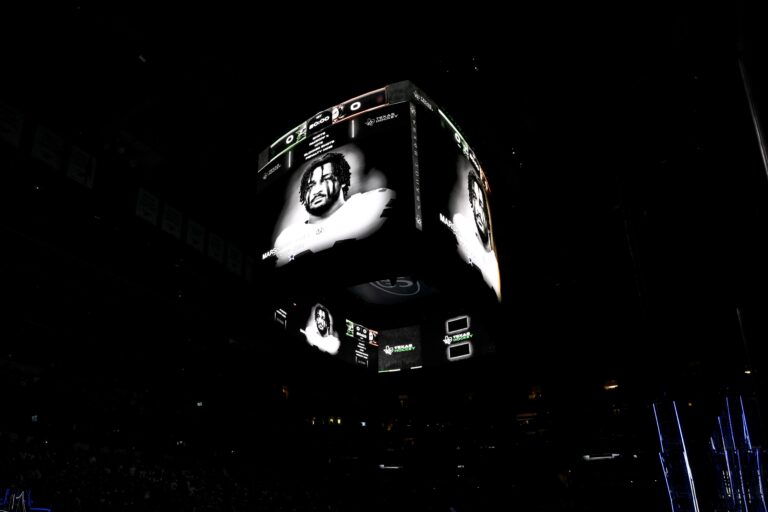Sarah Michelle Gellar Criticized for Gifting Daughter Expensive Car at Sweet 16
Actress Sarah Michelle Gellar recently stirred up debate after sharing that she gave her daughter Charlotte a brand-new Jeep for her 16th birthday. The Instagram post, full of nostalgic photos and warm sentiments, quickly drew both praise and criticism—largely over whether such a gift was “too much.” Below are the details, the critiques, and some defenses from both sides.
The Big Gift & The Birthday Post
https://www.instagram.com/p/DOyldRXkf1B/?utm_source=ig_web_copy_link&igsh=MzRlODBiNWFlZA==
To celebrate Charlotte’s sweet 16, Sarah Michelle Gellar posted a carousel of photos on Instagram featuring her as a baby up to recent times, along with pictures of the new Jeep Rubicon wrapped with a bow. In the caption, Gellar called her daughter “strong, kind, funny (almost as funny as me),” and joked that she was excited to finally be her “passenger PRINZEss.”
The post also notes the timing: Gellar celebrated this milestone while balancing public life and private parenting. She and husband Freddie Prinze Jr. share Charlotte and also their son Rocky (12). The family’s recent trips, and how Sarah Michelle Gellar reflects on her role as a parent in teenage years: including challenges, joys, and learning to let go a little—add context.
In a People interview, Freddie Prinze Jr. described parenting teenagers: “They’re not running away from you as much. Like, ‘Dad, can you take me here? Can you take me there? Can I see this guy? Can I see that girl?’ We try to keep our kids pretty active. You’re definitely more necessary, and you might feel like a chauffeur, and that’s a normal feeling for a parent to go through, but you’re definitely more necessary in the summer.”
The Backlash: What Critics Are Saying
Almost immediately after the post went live, critics came forward. Several social media users argued that gifting such an expensive vehicle to a 16-year-old sets an unrealistic standard of what parents “should” do, particularly for teens without the same financial resources. Comments included disappointment that this type of gift “normalizes gifting ridiculously expensive cars to new and young drivers,” and that it undermines values like earning something or managing money.
Another frequent point of criticism is the environmental impact. Some people objected to the Jeep’s fuel usage, calling out how large off-road SUVs are often less eco-friendly and more costly to run. There were also safety concerns; new drivers are statistically more likely to be involved in accidents, and some critics feel such large vehicles might give a false sense of security.
Beyond those practical points, others view the gift as an example of celebrity privilege that can alienate regular people. For many, it’s not just about the cost but the optics: seeing a famous person buy something that feels “over the top” can stir resentment, especially when many families struggle to afford basic necessities.
Support & Defense: The Other Side
On the flip side, plenty of fans defended Sarah Michelle Gellar’s decision. Some commenters pointed out that she clearly meant the gift with love, celebrating a milestone, not attempting to flaunt wealth. They emphasized that if a family is in a position to give a big gift, it’s ultimately their choice.
Others defended the Jeep itself as a relatively safe, rugged vehicle. The Wrangler Rubicon, while adventurous, has a reputation for being durable and dependable. Some fans said that parents choosing a tougher vehicle for a new driver may be making a safety-minded decision, even if it looks flashy.
Another point made by supporters is that sometimes people judge without knowing the full backstory. Perhaps there are expectations set by Charlotte’s upbringing, responsibilities she may have, or agreements between the family about responsibility for upkeep, insurance, or cost. These nuances are often lost in quick takes on social media.
Bigger Questions & Takeaways
This situation isn’t just about one gift—it raises broader questions about parenting norms, celebrity influence, and what we expect of milestones like turning 16. Do social media and the visibility of celebrity lives pressure parents to go bigger or more impressive with gifts? When does celebration cross into performance for an audience? These are becoming more common questions.
There’s also the matter of values: how do we teach teenagers lessons about gratitude, responsibility, and humility when faced with large gifts? Some say that balance matters more than gift size: what’s important is how parents frame it, what expectations they set, and how children are guided in handling privilege.
Finally, environmental considerations and personal finance are becoming parts of the conversation. Fuel efficiency, long-term costs, and sustainability are increasingly on people’s minds. Choices that once seemed purely personal are now being evaluated through broader societal lenses.





